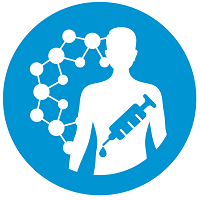Preclinical and Translational Sciences
Session: Symposium: Harnessing The Power of AI/ML in Drug Development
Integrating Machine Learning and Systems Pharmacology to Predict Clinical Outcomes to CAR-T Therapies
Tuesday, October 24, 2023
10:00 AM - 10:30 AM ET
Location: 311 CD West

Avisek Deyati, PhD (he/him/his)
Senior Scientist
Notch Therapeutics, British Columbia, Canada
Speaker(s)
The dose-exposure and exposure-response (safety and efficacy) relationships for CAR-T therapies is convoluted due to its unique multi-phasic cellular kinetic (CK) profile, several intrinsic and extrinsic patient-related factors, as well as product-specific characteristics arising from heterogeneous cell product composition. Traditional in-silico modeling approaches leveraged for small molecules or biologics cannot be applied directly but needs to be rather adapted for the development of CAR-T therapies. Optimizing dose in the early clinical development based on exposure-response relationships and identifying co-variates of exposure or response is challenging given the large inter-patient variability coming from plethora of factors impacting CK/PD of CAR-T therapies. At the same time, rich multi-dimensional datasets related to patient and product-characteristics, CK, biomarker, safety, and efficacy, are usually available though from limited number of patients during early clinical development. Here, advanced analytics such as AI (Artificial Intelligence) and ML (Machine Learning), dimensionality reduction approaches can be helpful in leveraging the rich datasets to better understand the high inter-patient variability, identify key drivers of safety and efficacy, predict clinical outcomes, and ultimately help in making informed decisions during development. This symposium presentation will cover the potential applications of different empirical and mechanistic modeling approaches currently explored in the development of CAR-T therapies. The presentation will focus on the application of advanced analytical approaches in deconvolution of correlated variables, better understanding drivers of safety and efficacy, and identifying critical factors in predicting clinical outcomes. Finally, a case study leveraging machine learning approach in understanding clinical outcomes of CAR-T therapies will be discussed.
The above presentation is one of the four topics proposed under the symposium titled ‘Evolving Clinical Pharmacology and Translational PK/PD approaches for cell and gene therapies’. The proposed symposium can be a two-hour session with 4 talks of 30 minutes. In addition to the above presentation on cell therapy, 2 other talks on gene therapy and 1 other talk on cell therapy are proposed separately to be a part of the same symposium.
The above presentation is one of the four topics proposed under the symposium titled ‘Evolving Clinical Pharmacology and Translational PK/PD approaches for cell and gene therapies’. The proposed symposium can be a two-hour session with 4 talks of 30 minutes. In addition to the above presentation on cell therapy, 2 other talks on gene therapy and 1 other talk on cell therapy are proposed separately to be a part of the same symposium.
Learning Objectives:
- To discuss the potential applications of different empirical and mechanistic modeling approaches currently explored in the development of CAR-T therapies
- To highlight the application of advanced analytical approaches in deconvolution of correlated variables, better understanding drivers of safety and efficacy, and identifying critical factors in predicting clinical outcomes
- To discuss a case study leveraging machine learning approach in understanding clinical outcomes of CAR-T therapies

